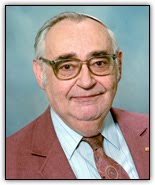 Article: On Knowing When to Resign by D. A. Carson, research professor of New Testament at Trinity Evangelical Divinity School in Deerfield, Illinois, and general editor of Themelios. (original source here)
Article: On Knowing When to Resign by D. A. Carson, research professor of New Testament at Trinity Evangelical Divinity School in Deerfield, Illinois, and general editor of Themelios. (original source here)
Certain kinds of questions come my way by email fairly regularly—every few weeks, every couple of months. One of these regulars runs something like this: “How do I know when it is time to resign?” If this is being asked by a pastor who is still young, it is usually prompted by a difficult situation that he longs to flee.
Circumstances of that sort are so diverse that I won’t attempt to address them here. What I have in mind is the pastor who poses this question at the age of 55, or 60, or 65, or 70. This pastor is wondering when it is time to lay down the burden of local church ministry, and consider something else—itinerant ministry, perhaps, or teaching overseas for a while, or working with a mission agency, or half-time pastoral work, perhaps as someone else’s associate. Are there any biblical and theological principles that should shape our reflection on these matters?
(1) In one sense, this is the right question to ask. Here is not someone who has reached some long-awaited ideal retirement age and is looking for an excuse to withdraw from ministry in favor of buying an RV to spend the next couple of decades alternating between fishing lakes and visiting grandchildren. After all, there is no well-articulated theology of retirement in Scripture. Rather, this is a serious question from someone who has borne the heat of the day, and who, for various reasons, wonders if it is not only permitted but right to ask if it is time to move on.
(2) In recent years, I’ve been passing on what I’ve picked up from a few senior saints who have thought these things through. The most important lesson is this: Provided one does not succumb to cancer, Alzheimer’s, or any other seriously debilitating disease, the first thing we have to confront as we get older is declining energy levels. Moreover, by “declining energy levels” I am referring not only to the kind of declining physical reserves that demand more rest and fewer hours of labor each week, but also to declining emotional energy without which it is difficult to cope with a full panoply of pastoral pressures. When those energy levels begin to fall is hugely variable (at age 45? 65? 75?), as is also how fast they fall. But fall they will!
It follows that if one attempts at age 85 to do what one managed to accomplish at age 45, a lot of it will be done badly. Frustrations commonly follow: old-man crankiness, rising resentments against the younger generation, a tendency to look backward and become defensive, even an unwitting destruction of what one has spent a lifetime building up.
Three things follow:
As long as God provides stable energy levels, one should resist the glitter of common secular assumptions about retirement—e.g., that there is (or should be) a universal retirement age, that somehow your work entitles you to a retirement free from all service, that the end of life should be dominated by pleasurable pastimes emptied of self-sacrifice and service. This is not to argue there is no place for, say, time devoted to creative tasks of one sort or another; it is to argue that it is sub-Christian to imagine that our service across the decades entitles us to a carefree retirement.
Once energy levels start to decline (whenever that might be), then, assuming that neither senility nor some other chronic disease is taking its toll, the part of wisdom is to stop doing some things so that with one’s remaining energy one can tackle the remaining things with enthusiasm and gusto. I can think of two or three senior saints who have become wholly admirable models in this regard. In their late 60s, they slowly started to put aside one task after another, with the result that, now in their early 90s, they can still do the one or two remaining things exceptionally well. One of them, for instance, will still preach, but never more than once a day. And he won’t fly anywhere: travel to the place he is to preach is either by car (with someone driving him), or by train. But when he does preach, you can close your eyes and listen to a man thirty or forty years younger.
There is another element in such decisions that is partly subjective, partly temperamental, partly a reflection of one’s sense of call—and of the ways these various factors interact with one another. John Calvin died on May 27, 1564, at the age of 54. All his life he held himself to the most rigorous, punishing schedule. That stunning self-discipline, a reflection of his passion for the glory of God and for the promotion of the gospel, was used by God to make the man astonishingly productive.
On the other hand, all the biographies I have read of him speculate that if in his latter years he had slowed down a little, he might have lived a good deal longer—and had he lived another decade or two, still with stable health, he may well have produced a great deal more.
But who are we to tell John Calvin what he should have done? Human motives are usually mixed. On the one hand, there is something hauntingly exemplary about a person who wants to burn out for Christ, to waste no time, to serve others, “… fill the unforgiving minute / With sixty seconds’ worth of distance run” (Kipling); on the other hand, there may be a wee touch of workaholism in such a stance, in which our very self-identity is tied to the number of hours we put in or the number of things we produce.
On the one hand, it might be a careful and thoughtful stewarding of our declining energies that makes a wise calculation about dropping certain responsibilities so as to maintain more important priorities; on the other hand, who is to deny that there may also be a touch of entitlement, or a cooling of youthful ardor, a dangerous love of mere ease? Each of us will have to give an answer to our own beloved Master, who knows us better than we do. It is probably not too much to suggest that if we are temperamentally drawn to one or the other of these extremes, we should be especially diligent to explore our motives most carefully.
(3) All things being equal (and of course, they never are), one should not leave one’s ministry until one or more of the following conditions is met:
One has to leave for moral reasons. Sadly, such failures are not restricted to young pastors. The older one gets, the more one should pray for grace to finish well.
Serious health issues mean that one can no longer discharge one’s pastoral duties fruitfully, with no realistic hope of returning to full strength (e.g., What is the prognosis after a serious stroke?).
One is clearly called by God to some other ministry. All of the usual complex factors have to be borne in mind. Continue reading

 Dr. Roger Nicole (December 10, 1915 – December 11, 2010[1]) was a native Swiss Reformed Baptist theologian. He was an associate editor for the New Geneva Study Bible, assisted in the translation of the New International Version, and was a founding member of both the International Council on Biblical Inerrancy and the Evangelical Theological Society, serving as president of the latter in 1956.
Dr. Roger Nicole (December 10, 1915 – December 11, 2010[1]) was a native Swiss Reformed Baptist theologian. He was an associate editor for the New Geneva Study Bible, assisted in the translation of the New International Version, and was a founding member of both the International Council on Biblical Inerrancy and the Evangelical Theological Society, serving as president of the latter in 1956.